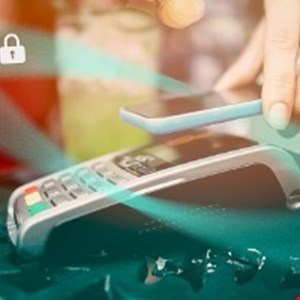Mastercard Introduces Quantum-Resistant Specs to Enhance Contactless Security

Credit card firm Mastercard has unveiled new quantum-resistant standards that are designed to enhance the security and privacy of contactless payments.
As a result of the move, Mastercard will become the first payments network to bring quantum-era security and privacy to contactless payments. The Enhanced Contactless (Ecos) specifications have been introduced following a surge in contactless payments over the past year, fuelled by the desire for more hygienic payment methods in-store as a result of the COVID-19 pandemic. Mastercard revealed that contactless penetration made up 41% of in-person purchase transactions globally in the third quarter of 2020, a year-on-year rise of 30%.
Ecos will enable the utilization of new quantum-resistant technology in order to deliver advances in algorithms and cryptography. Convenience will be maintained as contactless interactions will remain under half a second, and Mastercard said that, in time, any device can become a payment device without the need for a backup swipe or dip of a card.
The specifications also aim to enhance privacy by offering advanced protection when account information is shared between the card or digital wallet and checkout terminal.
The firm added that the Ecos specifications will enable merchants, financial institutions and customers to make such security transitions seamlessly over the coming years, with digital wallets, mobile payments, contactless cards and point-of-sale terminals continuing to work as they do today. This is because Ecos is implemented via a software upgrade without the need for new hardware of terminals.
Ajay Bhalla, president, cyber and intelligence at Mastercard, commented: “Contactless is the present and future of in-person payments. 2020 brought with it a rapid acceleration of digitization and reinforced the importance of digital solutions – like contactless – to help meet our everyday needs. As the ecosystem continues to evolve, more connected devices and the Internet of Things (IoT) are going to create more user demand and an even greater need for constant innovation to build next-generation capability, helping to ensure that technology never outpaces trust.”

